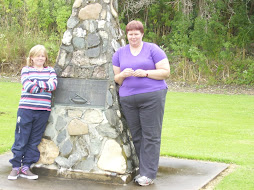Friday, March 7, 2008
Wednesday, March 5, 2008
Tutorial Two: Digital Camera use and applications
“A new technology is rarely superior to an old one in every feature”. Briefly discuss this statement in relation to digital camera technology. What would you consider to be some of the pluses and minuses digital camera technology holds in relation to more traditional film based cameras? + Instant results, do not need to leave the house to process the photos, only print the photos that you want, Size of the camera, Easily altered, Lots of settings on the camera. - Lots of settings on the camera, Size of the camera, Quality of the photos, Loss of human contact to process films. |
List some of the ways that digital images can be stored transferred and manipulated using other communications technology. On the web, Flashdrives, Harddrives, C.D’s D.V.D.’s, Memory cards/Sticks, E-mails, Cell phones, Laptops, Video Cameras. |
Given the prevalence of image capturing devices, and thinking about the issues discussed in tutorial one, consider what sort of ethical issues may arise with their use. Trustworthiness. Anyone can access and change the information. The right people receiving the information. |
Briefly discuss some of the ways that digital images could, or are, being used in occupational therapy practice. To capture every day activities e.g. The way someone walks or stands etc How to manuals with pictures. Tablet Laptops – Written your field notes straight onto the Tablet not onto paper. Digital Camera – Photos of Hazards, Renovations, and Equipment. |
Provide a brief summary of the services offered by Flickr.com Storage of images, Transferring of images |
Name one other photo storage website which offers a service similar to Flickr.com Facebook, Ringo, Bebo |
Explain what the difference is between a digital and an optical zoom Optical Zoom works the same as a zoom lens on a film camera. Digital Zoom simply crops the image smaller. |
Explain what is meant by the term mega pixel A mega pixel is made up of a million individual pixels or they make up the small squares within the image just like mosaic tiles. |
Tutorial One: Information Technology and Ethical Issues
| Provide a definition of Information Technology/Information Communications Technology (APA reference required) Information Technology: The study or use of processes ( esp. using computers, micro electronics, and telecommunications) for storing, retrieving, and sending information (e.g. words, numbers, pictures). The |
| Consider the definition of IT you have provided. How is this form of technology prevalent in our society? How common place has it become? Very, Most people have a wide range and number of micro electronics from cellphones to I-Pods, and most houses have at least one computer. |
| What IT devices or system do you feel comfortable and competent using? Computers, Camera, Phones, Video Camera, Texting, MSNing, E-mail, and Flashdrives to name a few. |
| Thinking about your own fieldwork experiences consider how IT is being used in Occupational Therapy practice?
Digital Camera – Photos of Hazards, Renovations, and Equipment. |
| What ethical implications arise from the capturing, sharing and transferring of information via IT devices (e.g. mobile phones) or systems (e.g. internet) Trustworthiness. Anyone can access and change the information. The right people receiving the information. |
| Provide a definition of Computer Ethics (APA reference required) Computer ethics is a branch of practical philosophy which deals with how computing professionals should make decisions regarding professional and social conduct.
|
| Provide a definition of Intellectual Property (APA reference required) In law, intellectual property (IP) is an umbrella term for various legal entitlements which attach to certain types of information, ideas, or other intangibles in their expressed form. The holder of this legal entitlement is generally entitled to exercise various exclusive rights in relation to the subject matter of the IP. The term intellectual property reflects the idea that this subject matter is the product of the mind or the intellect, and that IP rights may be protected at law in the same way as any other form of property. However, the use of the term and the concepts it is said to embody are the subject of some controversy |
| Provide a definition of Social Justice (APA reference required) Social justice mostly refers to an ideal of society, where "justice" refers to economic status rather than to the administration of laws. It is based on the idea of a society which gives individuals and groups fair treatment and a just share of the benefits of society, although what is "fair treatment" and a "just share" must remain unclear or subject to interpretation. |
| Provide a definition of Informed Consent (APA reference required) Informed consent is a legal condition whereby a person can be said to have given consent based upon an appreciation and understanding of the facts and implications of an action. |
In your own words briefly summarise why (or why not) a great understanding of ITC and the ethical issues it encompasses will help us in our practice and daily lives. To keep yourself and any clients, friends, families, supervisors, and employers information safe to the best of your ability, while staying within the ethical boundaries that surround the ITC. This will help with providing the best practice possible within your setting. |


